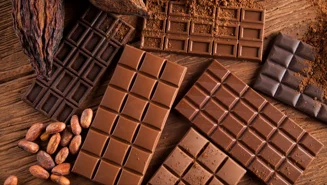
The biggest positive impacts that calcium, a nutrient found in milk, has is on our teeth and bones, helping to keep them healthy and properly maintained.
We’re going to look into the benefits and positive impact the calcium in milk can have for our bones and teeth, and find out exactly what it is that makes the nutrient so vital for our skeletons.
Is milk good for your bones?
When it comes to bones, calcium is a big deal.
Milk contains large amounts of calcium, which happens to be one of the most important nutrients out there for maintaining normal bone health. It’s a similar story to other dairy products like yogurt and cheese, which can both also be good sources of calcium.
Our bodies don’t produce their own calcium and we actually lose calcium every day though the normal functions of our systems. Since calcium is crucial not only for our bone health, but also for our hearts and our muscles, it’s important to get enough of it in our diets.
Normally we get calcium entirely through our diets, with 99% of it stored in our teeth and bones. Because of its importance, we need a regular intake from food and that’s where foods like milk can come in.
So, does milk make your bones stronger? Just one 200ml glass of milk can give adults up to 3% of the recommended daily intake of calcium, helping to keep your bones healthy.
Is milk good for your teeth?
Does milk help your teeth? Well, it’s the calcium within the milk that does the job.
Calcium and teeth go very well together. Just like our bones, our teeth rely on calcium.
Calcium helps to maintain what we call our tooth enamel. Tooth enamel is the hard exterior bits of our teeth – and this enamel has the pretty important job of protecting our teeth from being worn down from all the biting, chewing and chomping.
What other foods provide nutrients that can support bones and teeth?
As we saw, our bodies do not naturally produce the calcium we need for healthy bones and teeth, so we need to get our supply from elsewhere, such as our diets. We’ve seen milk and other dairy products can be a good source, but what other foods are rich in calcium?
Calcium-heavy foods include things like:
- Seeds – Seeds are an excellent addition to your diet for many reasons, one of which is the high calcium content in certain seeds like poppy and chia seeds.
- Almonds – Almonds are another neat dietary fixture that contain a whole lot of calcium in just a small nut, with around 22 nuts giving you 8% of your recommended daily allowance.
- Leafy vegetables – Dark green veggies like kale, broccoli, cabbage and okra are packed with good nutrients, and can be a source of calcium.
Frequently asked questions
How can I make my teeth and bones stronger?
Making your teeth and bones stronger is all about getting the right amount of calcium in a healthy and balanced diet. We’ve seen some examples of calcium-rich foods earlier in this blog that contribute to calcium levels in your teeth and your bones. Other ways you can help keep your teeth and bones healthy:
- Keeping fit
- Stop smoking
- Avoid drinking too much alcohol
- Keep your weight down
- Brush your teeth
Does milk increase bone growth?
Calcium, which can be found in milk, is one of the key minerals that helps bone growth in children. With adults however, it maintains bone density, rather than bone growth, keeping your bones at a healthy level to help prevent fractures and breakages.
Calcium is one of the essential minerals that we need in our diet, and a glass of milk contains a sizeable amount of the nutrient. Discover more about how calcium and milk can help you stay healthy on the Arla blog.







































